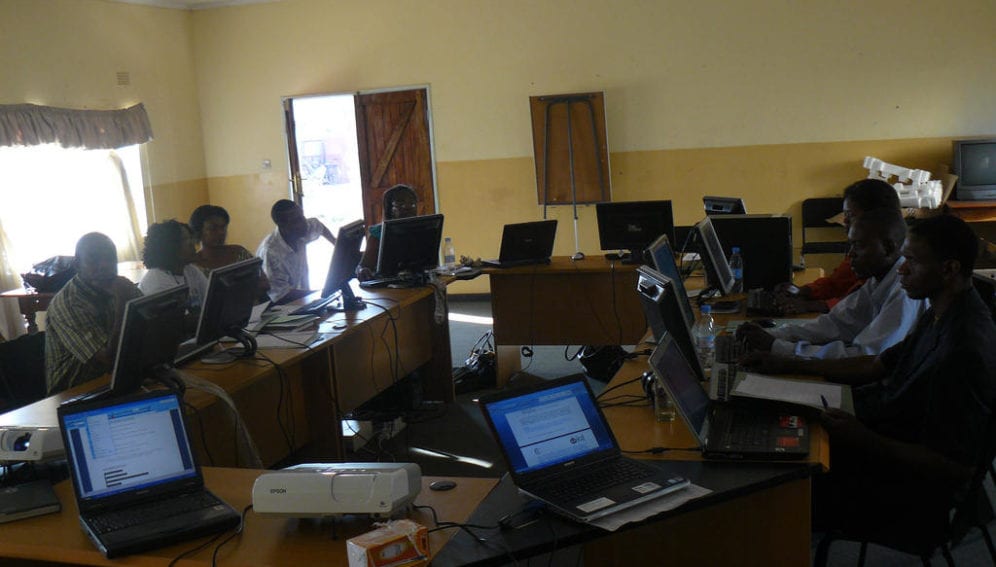By: Gilbert Nakweya
Send to a friend
The details you provide on this page will not be used to send unsolicited email, and will not be sold to a 3rd party. See privacy policy.
[KAMPALA] African countries are capitalising on information and communication technology (ICT) to guide development priorities as the continent witnesses unprecedented economic growth.
Last week, attention was focused on the 9th eLearning Conference in Kampala, Uganda (28-30 May), with many experts sharing experiences on specific challenges to economic growth in Africa.
From their presentations, the experts appear to be unanimous in their conviction that Africa’s major challenges today are skills gap and capacity building in ICT. Not even inadequate funding, as it is commonly perceived, is a more serious drawback.
“ICTs are driving this unprecedented growth transforming the continent, while validating the important role that science is playing in achieving African countries’ development agenda.”
Gilbert Nakweya
The African Development Bank recently published a report stating that Africa’s economy, excluding that of Libya, should grow by 4.8 per cent this year, compared with 4.2 per cent in 2013, probably the highest growth in the world.
ICTs are driving this unprecedented growth in transforming the continent, while validating the important role that science is playing in achieving African countries’ development agenda.
Experts at the eLearning conference are convinced that teachers and university lecturers are the key players in Africa’s capacity building and must therefore be given a supportive environment that includes the provision of learning resources such as textbooks.
Such support is the best way to inspire the teaching profession to help in Africa’s emergent transformation, according to Bitange Ndemo, Kenya’s former permanent secretary in the Ministry of ICT and the honorary chairperson of Alliance for Affordable Internet, Kenya.
“The teaching profession in Africa is not sufficiently esteemed as most teachers lack practical skills to equip learners with knowledge,” Ndemo told delegates at the conference.
Even as broadband connectivity to the rural areas increases in Africa, the experts caution that that the population needs to be equipped with the right skills to make sense of the technologies.
The experts point out that training 10 million teachers could be of great significance as they will in turn train 300 million youths in Africa.
Internet connectivity to rural areas is needed to provide equitable, affordable and quality education through eLearning to all.
Iyadunni Olubode, executive director of LEAP Africa, a non-profit organisation based in Nigeria that provides leadership skills, says: “If we can deliver education equally to the populations, then the African century has arrived. With the right content, Internet accessibility and facilitation to the people will increase knowledge uptake through eLearning”.
Uganda’s vice-president Edward Ssekandi says his government is promoting the use of online communications to ensure efficiency in service delivery. Uganda’s minister for ICT John Nasasira called for a review of policies to support eLearning in the country.
Africans must believe in their own capacity for transformational change.
About 81 per cent of the participants from Africa attended the conference this year, thus providing a useful platform for international collaboration to discuss Africa’s socio-economic growth from a scientific perspective.
This article has been produced by SciDev.Net's Sub-Saharan Africa desk.














